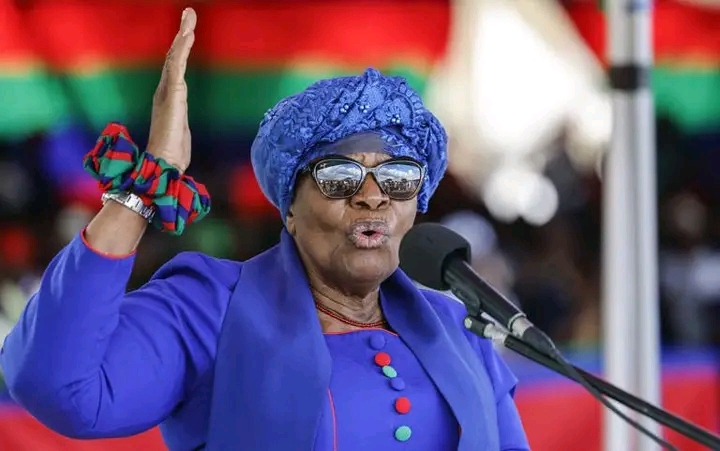Namibia has its first woman president. Namibians say it won’t mean much for women
Namibia’s presidential and National Assembly elections this year have been historic on many fronts. They were the country’s most controversial elections, with accusations of foreign interference and election rigging at the forefront; while the country’s first female president was elected.

The South West Africa People’s Organisation’s (Swapo’s) Netumbo Nandi-Ndaitwah was announced as the president-elect on Tuesday night, with 57.69% of the vote.
The announcement was made at the Electoral Commission of Namibia’s (ECN’s) headquarters in Windhoek, but many parties were absent — contributing to a sombre mood.
Multiple parties, including the incoming official opposition party, the Independent Patriots for Change (IPC), and the Landless People’s Movement (LPM) boycotted the announcement, as they do not recognise the election’s results.
In a statement issued moments before the announcement, the IPC reaffirmed its decision to challenge the election results in the courts.
“Thousands of ballots remain locked away, their fate unknown, while polling agents across the country await orders from their superiors regarding ballots under their care to be counted and their results announced.
“Polling stations, unlawfully designated as voting centres, continue processing votes under a shroud of illegitimacy,” said the IPC.
Swapo might have kept the presidency, but it fell short in the National Assembly ballot — securing only 51 seats. This continued the party’s gradual decline in the National Assembly — it won 77 seats in 2014 and 63 seats in 2019 out of 96.
While Nandi-Ndaitwah’s election is a landmark move for gender representation, Namibia is marred by high rates of sexual abuse and sexual and gender-based violence (SGBV). The United Nations Population Fund estimates that nearly a third of all women in Namibia have experienced physical violence from an intimate partner at some point in their lives.
A shallow victory for women
The award-winning intersectional activist Ndiilokelwa Nthengwe said Nandi-Ndaitwah’s appointment was “historic, but immaterial”. According to Nthengwe, Nandi-Ndaitwah does not have a track record that indicates that women in Namibia will benefit greatly from her presidency.
“For the Swapo party it’s historic, because they have a party leader that was set to become the first female president, but for the country not so much,” said Nthengwe.
They said Namibia was “in a state of delusion, in which we believe that an elderly woman can solve our social issues”. Nthengwe noted that Namibia remained patriarchal, because “we still associate women with social issues, but men with politics. We cannot just say that because she is the first female president, our issues around SGBV and femicide will be resolved.”
First-time voter Ester Eino echoed this sentiment. Eino pointed out that Swapo had no prominent focus on women’s rights during its campaign, other than having a female candidate.
“Swapo has not really identified anything for women, so we don’t know where we stand when it comes to issues like abortion rights and rights to maternity care,” said Eino.
“Polling stations, unlawfully designated as voting centres, continue processing votes under a shroud of illegitimacy,” said the IPC.
Swapo might have kept the presidency, but it fell short in the National Assembly ballot — securing only 51 seats. This continued the party’s gradual decline in the National Assembly — it won 77 seats in 2014 and 63 seats in 2019 out of 96.
While Nandi-Ndaitwah’s election is a landmark move for gender representation, Namibia is marred by high rates of sexual abuse and sexual and gender-based violence (SGBV). The United Nations Population Fund estimates that nearly a third of all women in Namibia have experienced physical violence from an intimate partner at some point in their lives.
A shallow victory for women
The award-winning intersectional activist Ndiilokelwa Nthengwe said Nandi-Ndaitwah’s appointment was “historic, but immaterial”. According to Nthengwe, Nandi-Ndaitwah does not have a track record that indicates that women in Namibia will benefit greatly from her presidency.
Comments